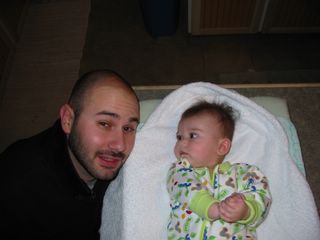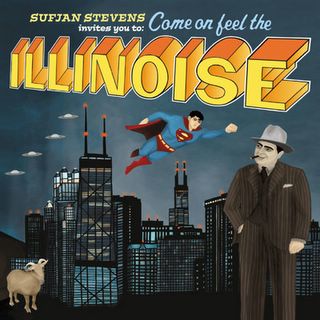David has always been good with words. He wrote his first story, Dan the Dinosaur, in grade one; a tale of love, loss and betrayal—or rather, a kid dinosaur's amusement park visit with his dinosaur parents, typeset in crayon.
That's the first paragraph of an "About" page on my (sadly un-updated) freelance site. It's true enough. I started playing with words at a young age. By second grade, I had Mrs. Chute's class workshopping short fiction. And while I no longer have any imagination whatsoever and haven't invented a plot more detailed than a white lie in years, it's my job to organize words. To play with them, like Legos or puzzle pieces, and build something on a page, or rather, on screen. Therefore, I feel it necessary to respond to Holly Hanke's "How to raise a child who loves to write" piece on MSN.
Take a moment to read it, and then let's dissect this mofo. How to raise a child who writesWriting doesn't come naturally to children. In fact, according to
Publisher's Weekly, 40% of American eight year-olds can't even read on their own. How is writing going to come naturally to children then? Imagination, maybe, but I'm pretty sure that's out, too.
Keep the pressure onTo raise a writer, give your child every opportunity to face defeat, disappointment and constant judgment. Your goal at this stage is to prepare your preschooler for a life of incessant criticism often delivered through cutthroat passive aggression. Better yet, your goal should be to direct your preschooler toward math or science.
Don't experiment with antiquated writing toolsSeriously, by the year 2000, there probably won't even be an alphabet any more. Why let your preschooler play with crayons when she's due to have a microchip installed into her brain in just a few short years? If you must offer her a writing tool, provide her with an overly priced notebook computer of some sort, preferably a Mac so that she can start down the road of unearned elitism early. If nothing else, providing your preschooler with a computer early should ensure strong typing skills. This way, when she realizes 20 years from now that a degree in iambic pentameter may not prove all that lucrative, she'll make a fine personal assistant for someone who studied math or science.
Don't experiment with surfacesSee above. Your child should be using a keyboard, not an Etch-a-Sketch. Also, if you're child uses one of the obsolete writing tools to "experiment" on the surface of the computer monitor, put her up for adoption. She will probably grow up to be a "mixed-medium" artist, the only thing worse than a writer.
 Model good writing habits
Model good writing habitsYoung children are copycats. If you want your preschooler to grow up to be a writer, show them good writing. If he's not reading the
Times on a daily basis and doesn't have Shakespeare's sonnets committed to memory by age 3, it's already too late. If he meets these criterion, point out that journalists, even for the nation's leading newspaper, are incredibly underpaid and under-appreciated. It may also be worth mentioning that 500 years worth of creative writers have been unsuccessfully measuring themselves against a man who made boys act as girls in his plays, and, by some accounts, died a virgin. Either way, buy your kid a chemistry set and point him toward science or math.
Use the computerNo shit.
Be dismissiveTurn away everything your child produces—even if it's good. (Don't worry, it won't be.) Remind your preschooler that Kerouac would write for hours, take his work and burn it without so much as reading it. He did this every day for a month leading up to beginning a new novel. Then say something like, "And yet, you hand me this.
THIS! I wouldn't wipe my ass with this." It's really for the best. Otherwise, years later when workshopping her latest short short fiction piece, she may have a nervous breakdown in realizing that her readers didn't fully grasp the subtleties and complexities of a supporting character within the one-page document. Better yet, dismiss this idea of writing all together and raise your child to be an accountant.
Sidenote: To see how a real writer lives, not of the copywriting variety, but a real, living, breathing, beret-wearing young adult fiction writer about to be published (again), swing by Sara Zarr's site.













